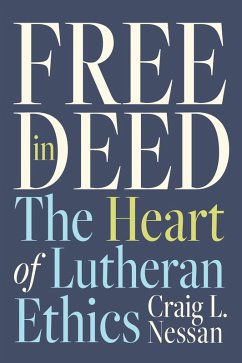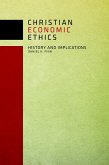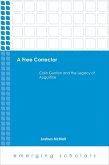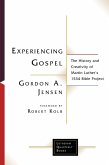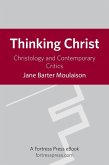Ethics involves intentional and disciplined reflection, together in community, on the choices we must make in living out our lives in the world. While the focus on loving the neighbor is not unique to Lutheran ethics, the author contends in this book that it is the most distinctive feature of ethics in the Lutheran perspective. To that end, Nessan explores biblical authority and Lutheran hermeneutics alongside the authority of the traditional elements of tradition, reason, and experience. He moves on to explore what gospel freedom looks like in the current American context.
Nessan acknowledges the misinterpretation of Luther's two-kingdoms teaching, opting to describe Luther's two kingdoms as God's two strategies to bring forth the kingdom (shalom) of God. Also addressed are the themes of justification and sanctification, the vocation of the universal priesthood, the ethics of the cross, Lutheran ethics and political advocacy, and the ethics of forgiveness.
The book is accessibly written with theology students, pastors, and interested lay readers in mind.
Dieser Download kann aus rechtlichen Gründen nur mit Rechnungsadresse in A, B, BG, CY, CZ, D, DK, EW, E, FIN, F, GR, HR, H, IRL, I, LT, L, LR, M, NL, PL, P, R, S, SLO, SK ausgeliefert werden.

